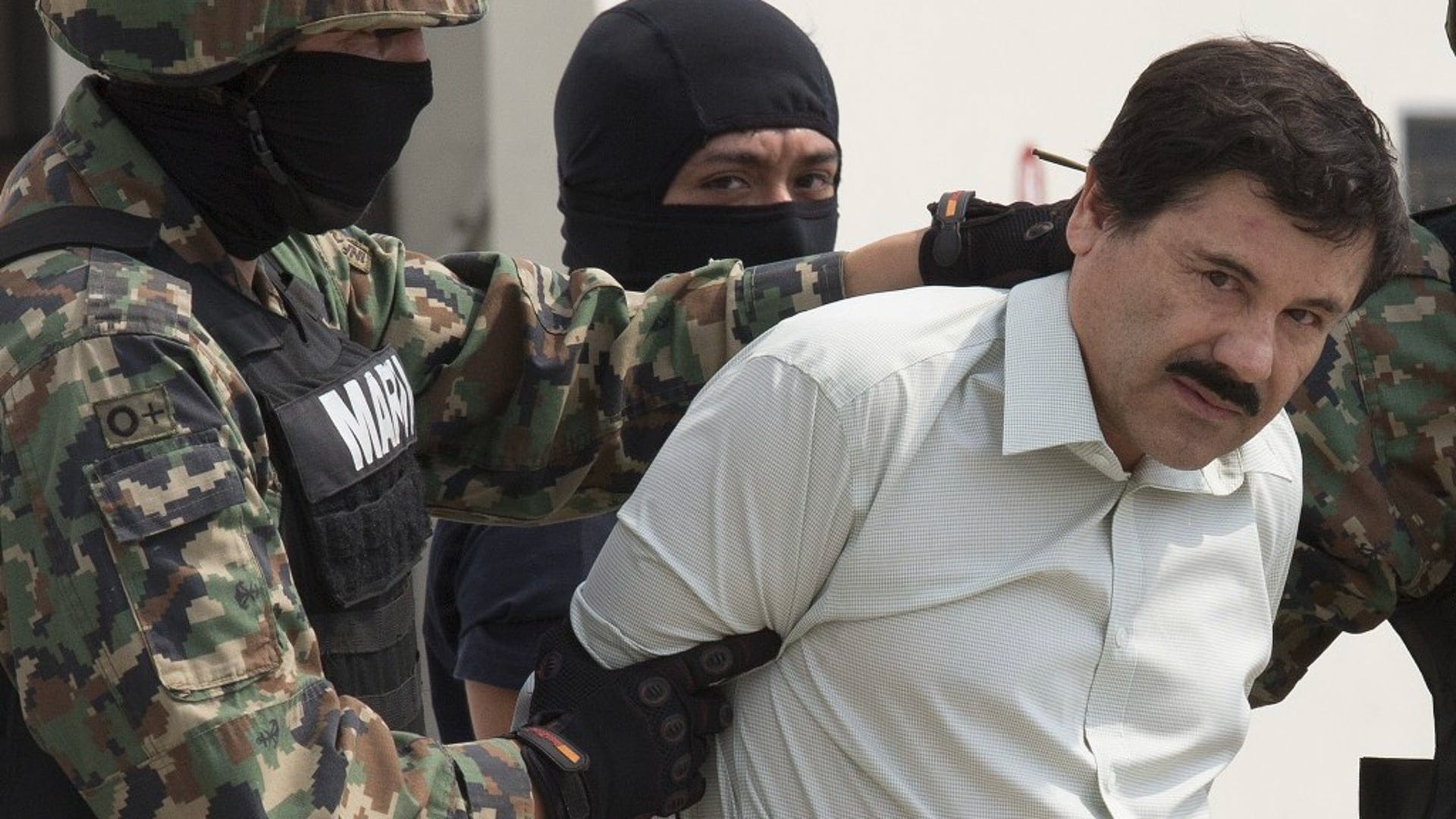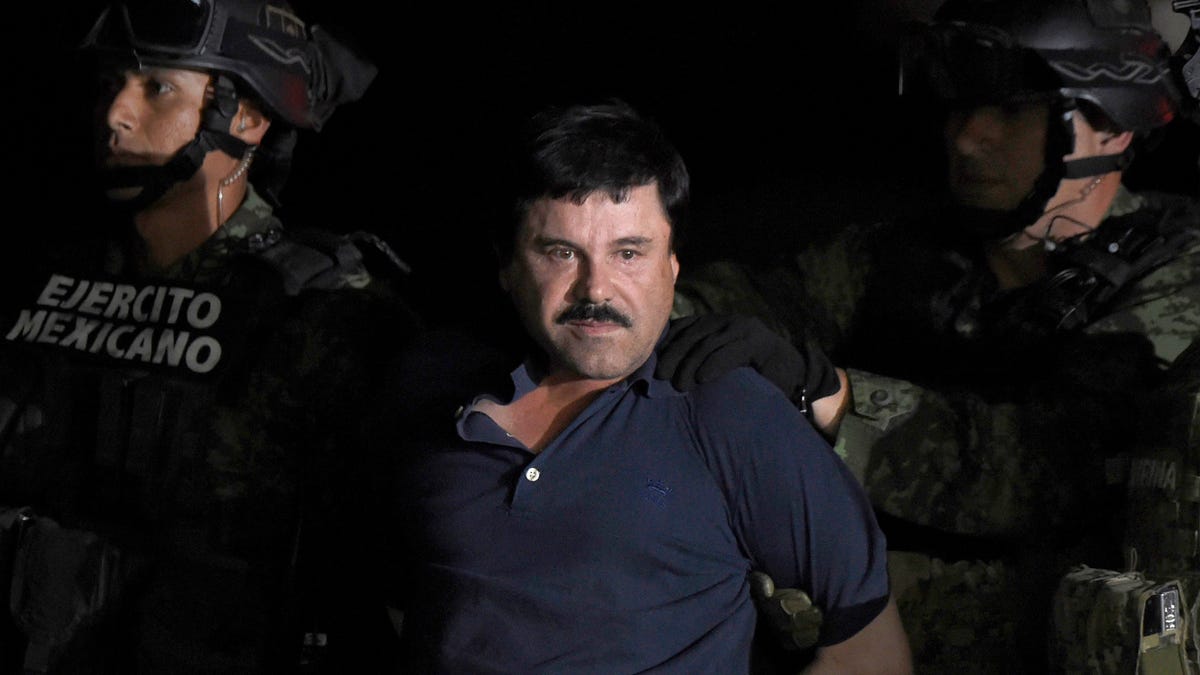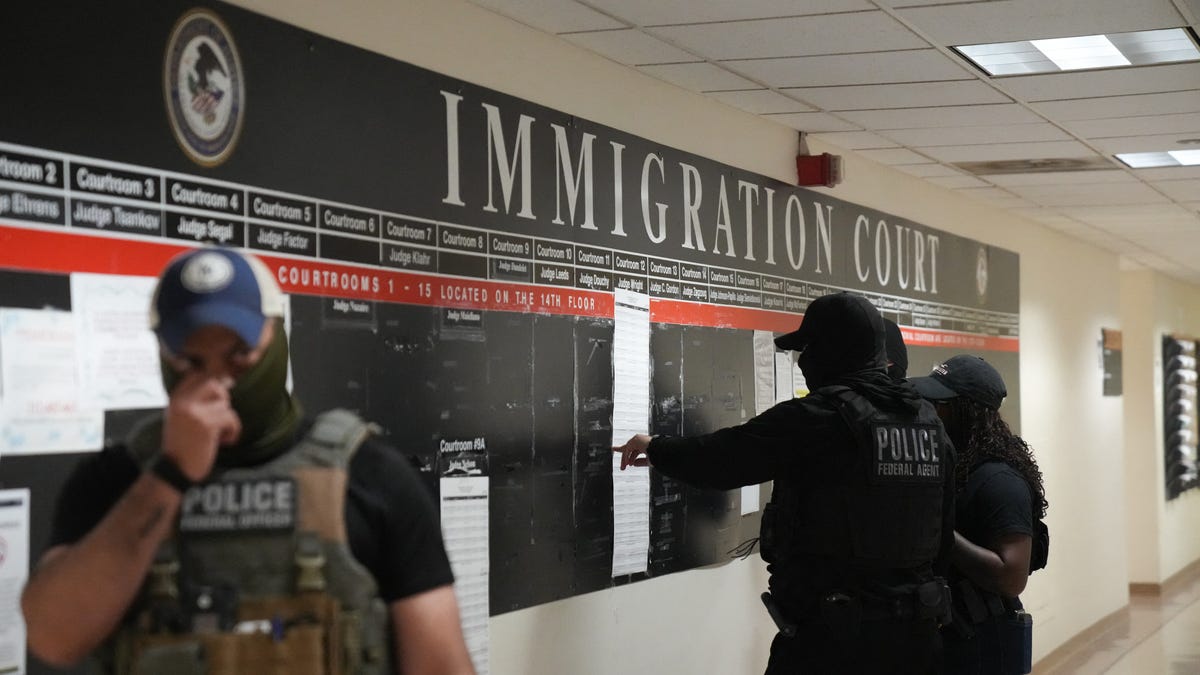A federal report details how in 2018 the Sinaloa Cartel enlisted a cyberagent to track an FBI agent to find informants and witnesses against Joaquín “El Chapo” Guzmán.

Reports say ‘El Chapo’ hacker linked with FBI informant killings
A hacker working for drug lord Joaquín “El Chapo” Guzmán infiltrated FBI operations to identify and target informants, according to a federal report.
unbranded – Newsworthy
A hacker working for infamous Mexican drug lord “El Chapo” tapped into an FBI agent’s cell phone data and Mexico City surveillance cameras to find, intimidate and kill agency informants, according to a newly released federal report.
The report from the Department of Justice’s Office of the Inspector General details how in 2018, the Sinaloa Cartel enlisted a cyberagent to track the FBI’s assistant legal attaché in Mexico City working on the case against Joaquín “El Chapo” Guzmán.
Guzman, considered responsible for the deaths of 34,000 people, was sentenced to life in prison in 2019 after conviction on charges including running a criminal enterprise and murder conspiracies. The report, released on June 26, sheds new light on the deadly tactics Guzman and the drug cartel employed to destroy resistance and cooperation with police.
Cartel members used information the hacker obtained “to intimidate and, in some instances, kill potential sources or cooperating witnesses,” according to the report.
Efforts to hurt the legal case against El Chapo came amid his federal trial in New York in 2018.
The hacker for El Chapo obtained information, the report says, by monitoring who was going in and out of the U.S. Embassy in Mexico City; tracking phone calls made by the FBI agent working on the case; and tapping into the city’s surveillance camera system to follow the agent and see who he was meeting. Legal attaché agents are “highly trained investigators” who work with law enforcement in their host country, according to the FBI.
U.S. Embassy officials in Mexico and the FBI referred questions to the State and Justice departments, which did not immediately return messages seeking comment. A lawyer for El Chapo did not immediately return messages seeking comment.
The report does not say how many sources and cooperating witnesses were killed or intimidated.
Revelations about the extent to which cartel affiliates managed to follow an FBI agent and get information to hurt a significant trial in the United States come as federal officials acknowledge the thorniness of the problem.
The report labeled an audit of the FBI’s “Efforts to Mitigate the Effects of Ubiquitous Technical Surveillance” said that recent technological advances “have made it easier than ever for less-sophisticated nations and criminal enterprises to identify and exploit vulnerabilities” in the global surveillance economy.
It said the FBI had a strategic plan in the works for mitigating those vulnerabilities and made several recommendations, including more training for bureau personnel.









